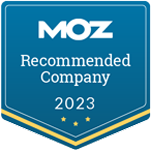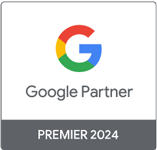If you want your business to provide an optimal experience to your customers, it’s important your audience interacts with your brand. The more engagement you have, the more sales you’ll make. At Zero Gravity Marketing (ZGM), we know you take pride in offering products and services that are the perfect fit for your customers. That’s why we want to help you create the perfect strategy to get your business seen. There’s no better time than now to get started with omnichannel marketing services.
What is Omnichannel Strategy Marketing?
An omnichannel marketing solution has one goal: to create a seamless experience for your website visitors, no matter which channel they use. From the first touchpoint to the last, it should feel like each step is a continuation of the previous one. Not only does this help allow for a more straightforward conversion process no matter which platform your customers are using, but it enables people to move through the sales funnel uninterrupted while checking the boxes on various touchpoints throughout your campaign.
Why You Need Omnichannel Marketing
We’ve touched on the question, “What is omnichannel marketing?” Now, let’s explore why you need it for your own business.
Your customers aren’t using a single channel to discover your brand; they utilize a number of digital devices as they move through the sales funnel. For instance, they might begin their journeys on their mobile phones within social and then jump on a tablet or laptop to complete the process via a search. For them, your brand is far more important than the channel they happen to find you on. For you, consistency across all of these platforms is key.
If you want your brand to stand out above the rest, it’s vital to employ an omnichannel marketing strategy. This will enable you to pass the right message to your audience at the right time, no matter where they view it. This gives you access to real-time targeting, enhancing your chances of converting your audience members into loyal customers.
Omnichannel vs. Multichannel Marketing
Is there a difference between omnichannel vs. multichannel marketing? There sure is!
Although both approaches tend to be quite similar, multichannel marketing is a far simpler one. This idea utilizes various channels as conversion platforms, but those channels are generally kept siloed from each other. For example, they can be anything from email to mobile and even direct mail. It’s a way to reach your target audience in a variety of places. The issue is that some businesses have trouble keeping things consistent across all those channels, resulting in a disjointed brand appearance and message. This can cause lost opportunities, considering how frequently people switch between channels during customer journeys.
On the other hand, omnichannel marketing bridges the gaps between your channels, unifying them into a single system. This makes the conversion process seamless, regardless of your audience's channel. In addition to consistent messaging, omnichannel marketing helps ensure the customer experience and support your buyers receive are consistent. For example, instead of forcing a person to go directly to the business location for customer support, they can reach out to the company via live chat on the website, send a message on social media, or shoot you an email. The goal is to create an integrated customer experience, regardless of how people reach out to you. You should provide a seamless, uniform experience to your customers, no matter which method or platform they choose to find you on.
For your digital marketing efforts to be successful, you must consider the experience from your customers’ points of view. Omnichannel marketing lets people continue through the sales funnel, even when they change how they investigate your brand. When you sync your various channels, users have an uninterrupted experience with your brand, whether they’re reading your blog posts or buying something in their shopping carts.
ZGM’s Approach to Personalized Digital Marketing
When it comes to our approach, it all starts at the core of your brand. We want to understand your brand messages and story and what you want to convey to your audience. Think of things like, what unique value do you bring? Also, what kinds of offers and incentives can you provide your followers?
Once we’ve established these points, we’ll analyze your existing marketing messages and look at your current customer journey to identify opportunities where we can build more cohesion for your brand, as well as any drop-off points and channels that need more (or less) attention.
From there, once we have all off this important information, our strategists will develop an omnichannel marketing roadmap that does the following (depending on the industry you’re in):
- Creates cohesion. We’ll work with you to create a cohesive message that focuses on telling your brand story and unique value with continuity in mind.
- Focuses on telling your brand story. We’ll help you hone your messaging in ways that focus on telling your brand story and unique value with continuity in mind.
- Incorporates integrations. We’ll get any integrations related to in-store and online experiences up and running to make your users’ experiences with your brand as seamless as possible.
- Addresses all channels in your strategy. This means we’ll look at all platforms and possible devices people could use to access your brand’s information.
- Makes the conversion experience easier for the audience. After all, this is the ultimate goal.
Our omnichannel marketing experts can help you integrate a strategy that combines all of your channels in a single solution so you can relay your messages to the people who need to see them, wherever they are. This will help you maximize your impact and attract new customers.
We’ll start by researching to see where your audience spends their time. Then we’ll help review and identify any missing buyer personas you should consider in your strategy. Once we map out these elements, our team will assist you in deciding which channels make the most sense to market. We’ll discuss what digital marketing strategies should be incorporated into your plan (for example, Pay-Per-Click or adding shoppable posts). Once your strategy is finalized, it’s time to see how it resonates with your target audience. We’ll gather data and recommend next steps as we move throughout the month.
We’re here to help you succeed, and as the digital marketing agency CT looks to when success matters, we’re proud to say we have a roster of happy clients who endorse our approach.
Omnichannel Services We Offer
Our omnichannel marketing pros are well-versed in all things marketing — from digital platforms to brick-and-mortar or traditional channels. When you work with us, we’ll ensure that every piece of your funnel is integrated, including:
- Email Behavior Targeting (EBT)
- SMS Text
- Social Media
- Display
- Direct Mail
- Digitally Automated Campaigns
- User Experience (UX) Strategy
- Customer Journey Analysis
- Customer Experience Apps (live chat, bot support, etc.)
Omnichannel Marketing FAQs
Whether you’re looking for examples of omnichannel marketing or simply curious about how it all works, check out this section to learn more!
The main difference between the two is the focal point. Omnichannel is more focused on using all available media channels to target the customer correctly, while multichannel marketing is more focused on the product or service and using more than one channel.
There are several different steps to take when it comes to creating an omnichannel strategy. You’ll want to first find out where your audience spends their time, create buyer personas, conduct audience segmentation, map your customer journey, assign channels certain priorities, and finally, you’ll carry out your integration across all the platforms you’ve decided to use.
If you need help creating an omnichannel strategy, our ZGM team is happy to assist!
In order to improve your omnichannel experience you will want to conduct the proper research as mentioned in the above . Understanding where your audience is and what resonates with them is key, that way you can carry our your marketing cohesively and correctly. The more personal the experience and the more value they get out of it, the better.
Some of the main benefits of omnichannel marketing when done correctly are increased sales, a smoother customer journey, better customer insight, and higher customer retention and loyalty.
One great example of omnichannel marketing would be a clothing brand: Let’s say they sell items on their website, they also have an app, they take advantage of Instagram’s “Shopping” tab, Amazon, as well as inside its brick-and-mortar store. An omnichannel retail experience for this business would unify all of these channels, enabling messages to be sent seamlessly no matter where the customer encounters them.
Another example would be the Starbucks Rewards app. This app removes many pain points, enabling app users to locate stores near them, removing the need to wait in line, and allowing them to order and pay before they get there.
Then there’s Amazon — between mobile push ads, social media, newsletters, a mobile app, and a chatbot feature, there’s a ton of integration that allows users to easily access the information they need to make purchases.
- Be consistent. Your brand should look and feel the same across all marketing channels.
- Be flexible. Analyze your results and be ready to pivot if something isn’t working.
- Target the right audience. You want to talk to the right people in the right channel.
Contact ZGM
Ready to up your omnichannel marketing game? Contact our experts at Zero Gravity Marketing today!





